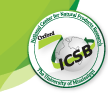Document Type
Oral Presentation
Location
Oxford Convention Center, 102 Ed Perry Boulevard Oxford, MS 38655
Event Website
https://oxfordicsb.org/
Start Date
18-4-2024 10:50 AM
End Date
18-4-2024 11:10 AM
Description
The NIH Office of Dietary Supplements (ODS) Analytical Methods and Reference Materials (AMRM) Program supports the development of tools that promote and facilitate rigorous and reliable characterization of dietary supplement (DS) identity, composition, and purity, as well as assessments of authenticity and contamination of botanical and other natural product raw materials and finished products. AMRM goals are accomplished through development and validation of quantitative and qualitative methods, production of certified reference materials (CRMs), and support of dietary supplement focused laboratory quality assurance programs. Recent advances in DS analytical resources supported by AMRM include an expanded availability of CRM calibration solutions for key bioactive and marker phytochemical constituents of several popular botanical DS ingredients, and the development of two new cyanobacteria biomass CRMs to for the determination of cyanotoxins. The current portfolio of AMRM-supported CRM calibration solutions in partnership with MilliporeSigma includes mixture solutions of ginger gingerols and shogaols, ashwagandha withanolides and withanosides, kavalactones, echinacea phenolic compounds and isobutyl amides, and Silybum silybins, silychristin, and silydianin. AMRM partnered with NRC Canada to support the production of a cyanobacteria CRM with comprehensive non-targeted analyses and value assignments for the major classes of cyanotoxins (i.e., microcystins, nodularins, anatoxins, cylindrospermopsins, and saxitoxins) and a non-toxic Aphanizomenon sp. control CRM, which are anticipated to be available in 2024. These newly available resources should benefit natural product researchers and industry scientists, expanding the analytical resource toolkit to better support safety assessments or to improve our understanding of how the chemical composition of DS links to their effects their effects on health.
Recommended Citation
Kuszak, Adam; Ruan, Zoe; Smith, Linda; Ajaz, Sarah; Srennivasan, Uma; Giddings, Sabrina; Beach, Daniel; McCarron, Pearse; and Wise, Stephen, "New Natural Product Certified Reference Material Resources Supported by the NIH Office of Dietary Supplements" (2024). Oxford ICSB. 28.
https://egrove.olemiss.edu/icsb/2024_ICSB/Schedule/28
Publication Date
April 2024
Accessibility Status
Searchable text
Included in
New Natural Product Certified Reference Material Resources Supported by the NIH Office of Dietary Supplements
Oxford Convention Center, 102 Ed Perry Boulevard Oxford, MS 38655
The NIH Office of Dietary Supplements (ODS) Analytical Methods and Reference Materials (AMRM) Program supports the development of tools that promote and facilitate rigorous and reliable characterization of dietary supplement (DS) identity, composition, and purity, as well as assessments of authenticity and contamination of botanical and other natural product raw materials and finished products. AMRM goals are accomplished through development and validation of quantitative and qualitative methods, production of certified reference materials (CRMs), and support of dietary supplement focused laboratory quality assurance programs. Recent advances in DS analytical resources supported by AMRM include an expanded availability of CRM calibration solutions for key bioactive and marker phytochemical constituents of several popular botanical DS ingredients, and the development of two new cyanobacteria biomass CRMs to for the determination of cyanotoxins. The current portfolio of AMRM-supported CRM calibration solutions in partnership with MilliporeSigma includes mixture solutions of ginger gingerols and shogaols, ashwagandha withanolides and withanosides, kavalactones, echinacea phenolic compounds and isobutyl amides, and Silybum silybins, silychristin, and silydianin. AMRM partnered with NRC Canada to support the production of a cyanobacteria CRM with comprehensive non-targeted analyses and value assignments for the major classes of cyanotoxins (i.e., microcystins, nodularins, anatoxins, cylindrospermopsins, and saxitoxins) and a non-toxic Aphanizomenon sp. control CRM, which are anticipated to be available in 2024. These newly available resources should benefit natural product researchers and industry scientists, expanding the analytical resource toolkit to better support safety assessments or to improve our understanding of how the chemical composition of DS links to their effects their effects on health.
https://egrove.olemiss.edu/icsb/2024_ICSB/Schedule/28


